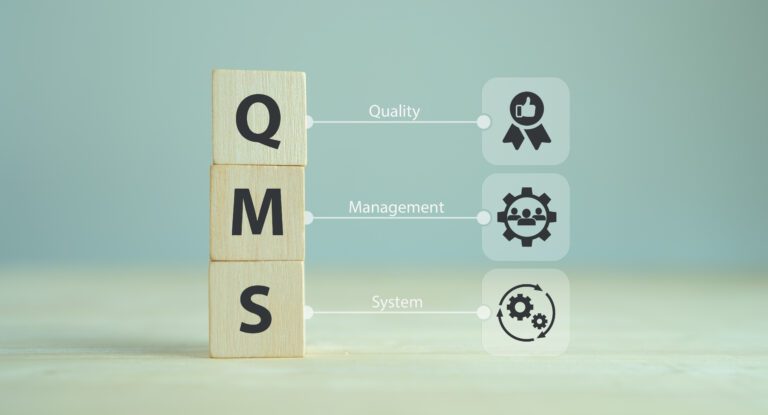Quality Management System

Quality management systems (QMS) are a set of policies, procedures, and processes that an organization implements to ensure that its products and services meet or exceed customer expectations. The goal of a QMS is to provide a framework for managing and improving an organization’s operations by focusing on customer satisfaction, continuous improvement, and compliance with regulations and standards. In this blog post, we’ll take a closer look at what a QMS is, why it’s important, and how it can benefit your organization.
What is a Quality Management System?
A Quality Management System (QMS) is a set of interrelated or interacting elements that an organization uses to achieve its quality objectives. It’s a systematic approach to managing an organization’s activities and processes in a way that ensures consistent delivery of high-quality products and services. A QMS typically includes policies, procedures, work instructions, and records that define how an organization operates, measures performance, and makes improvements.
Why is a Quality Management System Important?
A QMS is important for several reasons. First, it helps organizations ensure that their products and services consistently meet or exceed customer expectations. This, in turn, leads to increased customer satisfaction and loyalty, which can help organizations build a strong reputation and increase their market share.
Second, a QMS can help organizations identify and mitigate risks, such as those related to product safety or regulatory compliance. By having a systematic approach to managing risks, organizations can reduce the likelihood of negative consequences and improve their overall performance.
Third, a QMS can help organizations improve their operational efficiency and effectiveness. By continuously monitoring and improving processes, organizations can reduce waste, increase productivity, and optimize resource utilization.
Finally, a QMS can help organizations comply with regulatory and industry standards. Many standards, such as ISO 9001, require organizations to have a QMS in place to ensure conformance.
Benefits of a Quality Management System
Implementing a QMS can provide several benefits for organizations. Here are a few examples:
- Improved customer satisfaction: By consistently delivering high-quality products and services, organizations can increase customer satisfaction and loyalty.
- Increased efficiency: By identifying and eliminating inefficiencies in processes, organizations can reduce waste, increase productivity, and optimize resource utilization.
- Better risk management: By having a systematic approach to managing risks, organizations can reduce the likelihood of negative consequences and improve their overall performance.
- Compliance with regulations and standards: By complying with regulatory and industry standards, organizations can avoid penalties and legal liabilities and gain a competitive advantage.
- Continuous improvement: By monitoring and improving processes, organizations can continuously improve their operations and stay ahead of their competition.
Conclusion
A Quality Management System is an essential tool for any organization that wants to deliver high-quality products and services consistently. By implementing a QMS, organizations can improve customer satisfaction, increase efficiency, manage risks, comply with regulations and standards, and continuously improve their operations. If you’re interested in implementing a QMS in your organization, consider working with a consultant (i.e MM Consulting NZ) or seeking certification to ensure that your QMS meets industry standards.
